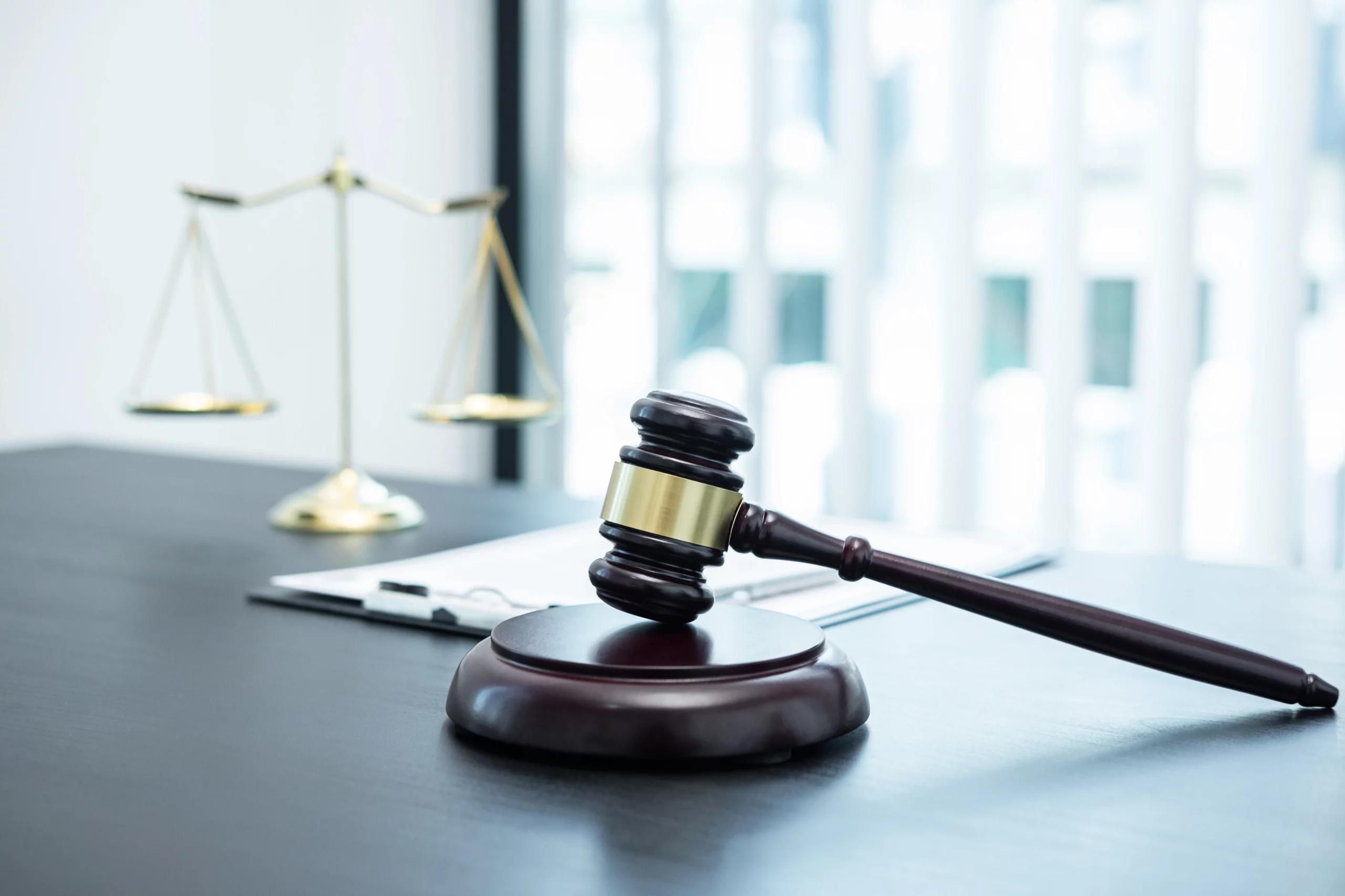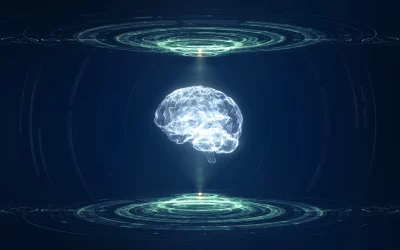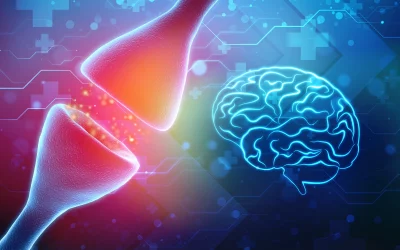For several years, there has been a surge in interest in traumatic brain injuries. High-profile professional sportsmen such as hockey player Sidney Crosby and snowboarder Kevin Pearce and Tampa high school football star Sean McNamee have all had head injuries. Sporting events that result in head injuries are often shown on television, which has aided in raising awareness of the sometimes hidden hazards of traumatic brain injury.
TBI was linked to roughly 2.5 million emergency department visits, hospitalizations, and fatalities in 2010, according to the Centers for Disease Control. Falls were responsible for around 40% of the cases, which disproportionately impact children under the age of 14 and individuals over 65. The second biggest cause, sometimes known as blunt trauma, was being struck by an item (15%), followed by motor car collisions (14%) and assault (14%). (10 percent ).
Traumatic brain injury victims and their families are often bombarded with medical information that is difficult to digest. Understanding a few important terminologies may go a long way toward ensuring that the victim is adequately cared for.
The Glasgow Coma Scale is used to assess the severity of a brain injury on a basic level. It rates a patient’s eye-opening, verbal skills, and motor responses, awarding points for different replies. A higher number suggests better function or less serious injury, whereas a lower score indicates more severe damage.
The most frequent TBI is a concussion produced by a jolt or blows to the head that causes the brain to move inside the skull. Because the victim’s skull is not punctured, it is categorized as a closed-head injury. A person who has been concussed may or may not lose consciousness, and the damage may not be visible right once.
A slight head injury does not take as much power as expected, and the symptoms are often delayed or disregarded. Headaches and dizziness, nausea, weariness, and a loss of focus are all possible symptoms. Concussions are seldom fatal, but their consequences may be severe and long-lasting.
TBIs often damage cognition or thinking abilities. Concentration is hampered, and information is processed at a slower pace. Memory loss is common, and a lack of problem-solving skills may make even easy jobs difficult to complete.
Swelling of the brain within the skull causes lethargy, or tiredness, which is a frequent sign after mild head injuries. A significant head injury might cause a sufferer to lose consciousness for 20 minutes to 6 hours. The sufferer may be woken with effort even if they are not awake.
A coma, or an unconscious condition that lasts longer than 6 hours, is the outcome of a severe brain injury. The sufferer is deafeningly deafeningly deafeningly deafeningly deafeningly deafeningly. This is not the same as being in a vegetative state, when the sufferer may have waking and sleep cycles and react to stimulus.
A CT scan, or computed tomography, will be used to diagnose most head injuries. CT scans combine many x-ray pictures from various angles and piece them together to provide cross- sectional views of the body’s interior. It’s particularly useful for detecting internal injuries, such as those that occur inside the skull.
Term Glossary
Glossary for Traumatic Brain Injury Intensive rehabilitation
An inpatient treatment program should be started as soon as feasible after a TBI. It usually entails assisting you with daily duties such as eating, getting dressed, walking, and communicating.
Agnosia Due to brain injury, the inability to distinguish things, persons, scents, or noises. It’s a neurological disease that happens rapidly after a TBI and is different from memory loss (amnesia).
Agraphia The capacity to write has been lost. When this occurs due to a TBI, it’s often followed by a loss of reading skills (alexia). Agraphia may vary from moderate (difficulty writing words) to severe (difficulty writing sentences) (inability to write).
Alexia Loss of reading ability. In patients with TBI, this is often accompanied by a loss of ability to write (agraphia), although it may also occur independently. Alexia is a condition that may vary from moderate to severe.
Amnesia Brain injury causes memory loss, which may lead to losing information, experiences, or practical knowledge. Amnesiacs may have difficulty learning new knowledge and developing new memories, besides losing memories that were formed before the TBI.
Anticonvulsants are medications that assist persons with post-traumatic epilepsy stop having seizures. They may also be used to treat seizures shortly after a TBI in persons who do not develop a seizure disease.
Antidepressants are drugs used to treat depression, a mood illness marked by a persistent feeling of melancholy or lack of interest that may arise after a TBI. Antidepressants come in various forms, some of which may also be used to treat other neurological disorders.
Apathy and a lack of initiative are two symptoms of apathy. Many persons who have had a TBI exhibit apathy or a lack of enthusiasm to establish objectives or begin or complete activities. This might have a detrimental influence on recovery-related behaviors, as well as career and family life.
Aphasia is the inability to comprehend or express oneself verbally as a result of brain damage.
It might be moderate (saying the incorrect word or forgetting the word you were going to use) or severe (saying the wrong word or forgetting the word you intended to use) (producing few recognizable words).
Ataxia Involuntary motions such as walking or grabbing things lose control or coordination. Damage to the cerebellum is the most common cause, and it may impact your speech, eye movement, and swallowing.
An audiologist, A hearing and balance specialist is a healthcare expert educated to diagnose and treat hearing and balance issues. Audiologists may conduct a range of tests and, if necessary, fit hearing aids to discover these issues.
Biofeedback is a kind of treatment that uses brainwaves to Electronic equipment to assess physical reactions in your body. The results are sent back to you — on a computer screen or via voice — to assist you in changing these responses. EEG neurofeedback, which detects certain brainwave frequencies and may help you improve mental function, is one kind of biofeedback often used for TBI.
Fog in the head A poorly defined phrase that refers to a combination of memory impairments, mental clarity issues, and difficulty concentrating that often accompany TBI. It’s been characterized as a “fuzzy” sensation or pressure within your skull.
Plasticity of the brain Neuroplasticity is the capacity of brain cells to change in response to influences within or outside the body. These alterations may explain some of the negative consequences of TBI, but your brain’s capacity to adapt — both physically and functionally — is also the foundation for many TBI therapies.
MRI of the brain An imaging scan is used to evaluate structural changes in the brain. In an emergency, computed tomography (CT) scans are often used to diagnose TBI damage. In contrast, follow-up scans after recovery may employ magnetic resonance imaging (MRI) to search for subtle changes in the brain.
Cerebellum A tiny structure near the rear of your brain that houses more than half of your brain’s neurons (brain cells). It’s in charge of maintaining balance and posture and coordinating voluntary motions (such as walking and grasping items) and performing some cognitive activities.
Concussion of the brain When part of your brain hits a ridge in your skull, this form of TBI causes scattered patches of bleeding on the surface of your brain. Within 48 to 72 hours following the original injury, this kind of bruising frequently causes brain swelling (cerebral edema).
Hypoxia in the brain A decrease in the amount of oxygen delivered to your brain. This issue might appear anywhere from hours to days following a TBI. Mild hypoxia may result in memory loss or a lack of coordination, but severe hypoxia can result in seizures, coma, or death.
Cerebrospinal fluid (CSF) is a clear liquid found in the brain and spinal cord that functions as a “cushion” to protect the brain and spinal cord from damage and trauma. Cerebrospinal fluid seeping from your ears or nose might be a sign of a traumatic brain injury.
Chronic traumatic encephalopathy (CTE) is a kind of encephalopathy (CTE) A chronic, degenerative brain condition induced by repetitive head trauma, which may occur years or decades after the initial trauma. CTE is usually only detected at an autopsy when the brain is sectioned.
Head injury with a closed head Any kind of head injury that does not result in the skull being physically punctured or broken open. Because your brain may still bruise or bleed considerably after a closed head injury, it can result in moderate to severe TBI.
Rehabilitation of Personalized brain training to help patients with TBI enhance their mental functioning. This sort of treatment may assist patients in regaining their independence, improving their quality of life, or performing a job.
Coma is a state of prolonged unconsciousness caused by a disease or injury, such as a traumatic brain injury (TBI). A coma is a medical emergency that needs immediate medical attention to keep the person alive and retain brain function. It may persist for up to several weeks and result in progressive recovery, a vegetative condition, or death. Comas are sometimes medically induced.
An earlier word for computed tomography is computed axial tomography (CAT) (CT).
Computed tomography (CT) is a form of imaging scan that shows a cross-section of a bodily part using a succession of X-rays. It’s often utilized in emergencies to produce a brain picture after a TBI.
Concentration is the capacity to concentrate on a task for an extended amount of time. A TBI may affect the focus and higher-level processes like memory and thinking, which are required for both job and social activities.
A concussion is a mild TBI in which your head and brain move back and forth rapidly due to a collision. This movement may cause your brain to bounce or twist within your skull, triggering chemical and physical changes in your cells. Concussions may result in loss of consciousness or not.
Dementia pugilistica (pugilistic dementia) is a kind of dementia that affects.
An earlier term for mental deterioration caused by recurrent head traumas. It’s also known as “boxer’s dementia,” and it’s now known to be a symptom of chronic traumatic encephalopathy (CTE).
Axonal damage that is widespread As the brain moves and rotates within the skull, ripping of the brain’s long nerve fibers (axons) occurs. This TBI may result in tiny abnormalities that aren’t evident in imaging studies but are serious enough to induce coma and extensive damage.
Disinhibition Loss of control over one’s actions, which leads to socially incorrect behavior. A possible side effect of TBI, disinhibition may range from revealing excessive amounts of information to inappropriate wrath or sexual approaches.
Disorientation You’re unsure of the time, where you are, or who you are. Following a moderate to severe TBI, a period of bewilderment and disorientation is frequent.
Dizziness A phrase that may be used to describe light-headedness, vertigo (the sensation of moving yourself or your surroundings), or unbalanced. Dizziness is a typical symptom after a mild TBI that may continue for weeks or even months but can improve with time or in particular activities.
Dysarthria Speech that is slurred or sluggish owing to the weakness or inability to regulate particular muscles. Dysarthria, a possible TBI symptom, may improve with speech therapy and associated activities.
Epilepsy is A persistent condition characterized by spontaneous seizures (with no known underlying cause). TBI is one of the possible causes of epilepsy. However, not everyone who suffers seizures after a TBI develops epilepsy.
The Glasgow Coma Scale measures the severity of a person’s com. When someone is in a coma, this approach determines how seriously their awareness is damaged. It entails capturing a person’s reaction to various stimuli such as vocal directions, noises, and touch or pressure.
One of the most prevalent symptoms of a TBI is dizziness. Pain in the head, face, or neck is a consequence of it. A headache may be subtle, throbbing, or acute, and it can continue for days or weeks after the original damage.
Hyperbaric oxygen therapy (HBOT) is a treatment that consists of sessions of inhaling pure oxygen in a high-pressure chamber. Despite some encouraging study outcomes, this treatment is currently considered experimental for TBI, despite some promising results from research investigations.
Monitoring of intracranial pressure A diagnostic test to see whether the symptoms you’re having are due to an abnormally high or low cerebrospinal fluid pressure. It entails the insertion of a probe into your skull that remains in place for at least 24 hours.
Magnetic resonance imaging (MRI) is a kind of imaging that employs a magnetic field and radio waves to produce a detailed image of a part of your body. It’s widely used to examine the brain after a TBI, and it may reveal regions of damage and structural and functional changes over time.
Impairment of memory Memory impairment is a frequent complaint among TBI survivors. It might damage short-term memory (forgetting what you did lately) or prospective memory (forgetting what you’re expected to do). Still, it can also influence long-term recollection or the memory of your injury.
Nausea After a TBI, this is a frequent symptom. Nausea is a stomach ache that makes you feel as if you’re about to puke.
Neuro fatigue is a feeling of being overwhelmed or overstimulated, which causes a person to shut down physically and emotionally. With this frequent TBI symptom, easy chores or ordinary social encounters may become overwhelming – sometimes unexpectedly. As your brain rebuilds broken connections, your neuro fatigue may improve over time.
Neurologist A doctor who specializes in brain and nervous system problems. While all neurologists get some training in dealing with brain injuries, others specialize in TBI and prioritize their practice.
Degeneration of neurons Neurodegeneration refers to the loss of function of neurons (brain cells). This complicated process may start immediately after a TBI and continue for weeks, leading to or contributing to various symptoms.
Neuropsychological assessment
A test that evaluates how your brain works, generally done with a pencil and paper. By grading your findings, a qualified professional examines your brain’s strengths and weaknesses, which may guide treatment options after a TBI.
Sensitivity to noise and light Overstimulation may be caused by many forms of illumination, such as low or bright lights or by loud or continuous sounds or crowds. This frequent TBI symptom may make doing regular activities difficult or impossible and may need avoiding particular stimuli, such as by remaining in a darkened room or using earplugs.
Phonophobia The sensitivity to noise is an indication of a traumatic brain injury. Photophobia After a traumatic brain injury, you may have light sensitivity.
Physiatrist Physical medicine and rehabilitation is a specialty of a doctor. Physiatrists are doctors who specialize in treating disorders that impact the brain, nerves, and muscles. Some have received training in the field of brain damage medicine.
Therapist (Physical) A movement-related healthcare expert may offer information, prescribe and instruct exercises, or perform the hands-on treatment (also known as a physiotherapist). After a TBI, a physical therapist may assist you in developing a strategy to improve your strength, balance, and coordination.
Post-concussion syndrome is a condition that occurs after a concussion—a group of symptoms that might appear after a concussion and can linger for weeks or months. Headache, dizziness, exhaustion, cognitive issues, difficulty sleeping, noise and light sensitivity, blurred vision, and other symptoms may be present.
Psychologist Through a process known as psychotherapy, a therapist, may assist you in examining your ideas and how they may be leading to mental or physical discomfort. A psychologist may be able to assist you in figuring out how your TBI has altered your sense of self and setting new objectives based on your values and priorities.
Seizure A jerking movement, bewilderment, or loss of consciousness or awareness may all be indicators of rapid electrical disruption in the brain. A TBI may produce one or more seizures in the days after your accident, or it may result in continuing seizures over time (known as epilepsy).
A speech and language therapist: A healthcare expert specializing in communication and can assist in treating a variety of language and swallowing issues. A speech-language pathologist can assist you if you’re having problems speaking, paying attention in a conversation, or reading and writing after a TBI.
Scan using a SPECT A form of imaging scan that creates 3D pictures of your brain using a radioactive chemical and a specific camera. It may go beyond basic imaging to identify which parts of your brain are more or less active, which can assist diagnose TBI damage.
Survivor Someone who has recovered from a TBI is known as a survivor. Other words, such as “thriver” and “warrior,” are used by others.
Problems with vision Blurred or double vision, partial vision loss, aberrant eye movements, loss of perceived color or contrast, and other visual symptoms of TBI might occur. Many various jobs, including reading, might be difficult to do because of these issues.
Rehabilitation of the vestibular system A kind of physical therapy that involves specific exercises to enhance balance and alleviate dizzy issues. The exercises may focus on maintaining your gaze, growing accustomed to circumstances that induce dizziness (habituation), or increasing balance and effort, depending on your specific symptoms.
WARRIOR’S TRAUMATIC BRAIN INJURY LAWYERS CAN HELP YOU NOW
Once your physician establishes the initial diagnosis and prognosis for recovery, it is important to consult with an experienced traumatic brain injury attorney to determine if the injury was due to someone else’s negligence, whether the injury occurred in a car or motorcycle accident, or during a sporting event.
The attorneys Warrior Car Accident Lawyers, are committed to understanding the medical nuances of traumatic brain injury so that they can procure just compensation for victims. If we can assist you with a free case evaluation and consultation regarding a traumatic brain injury, please call us at 719-300-1100.












